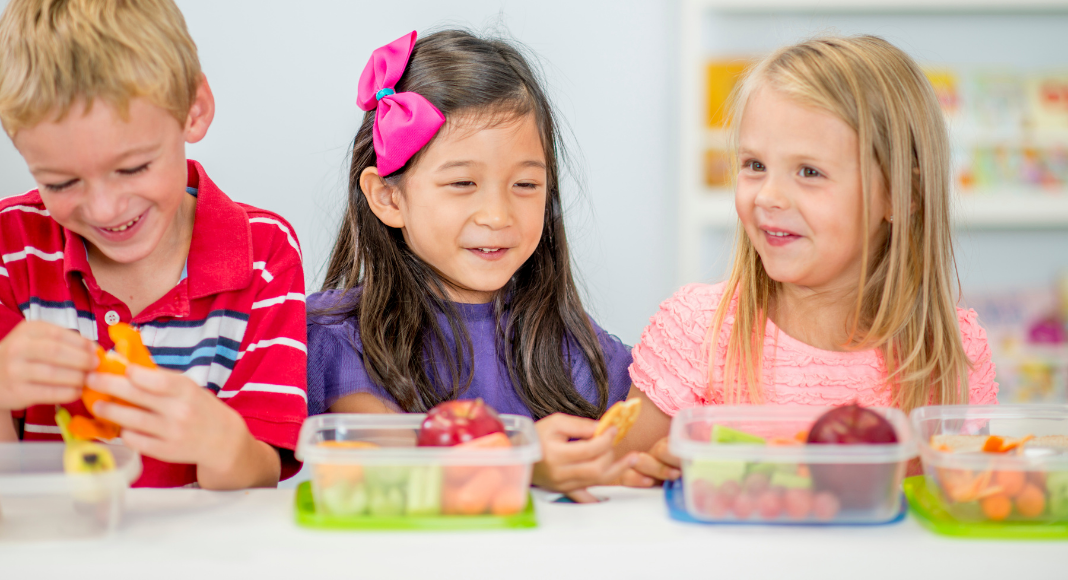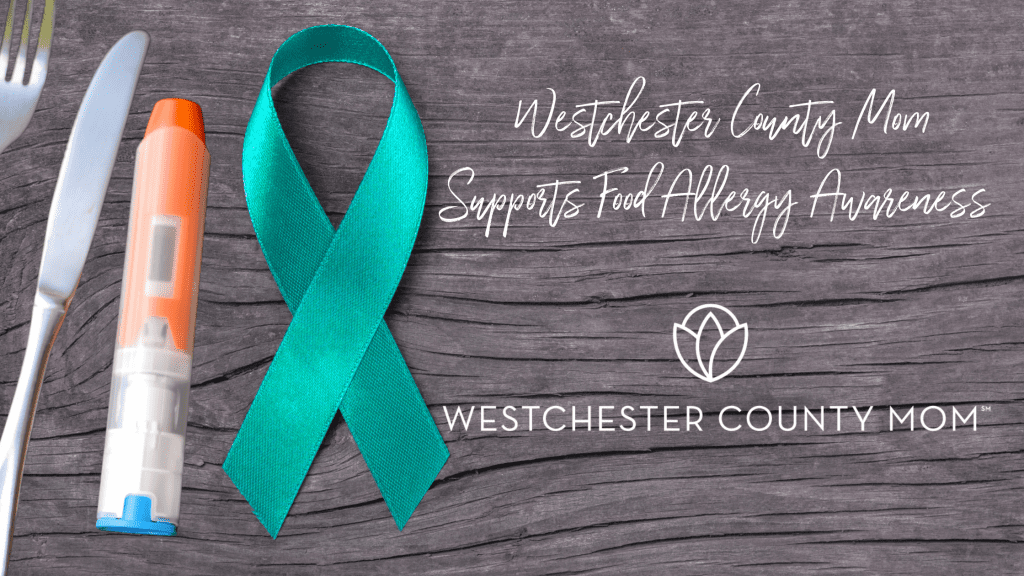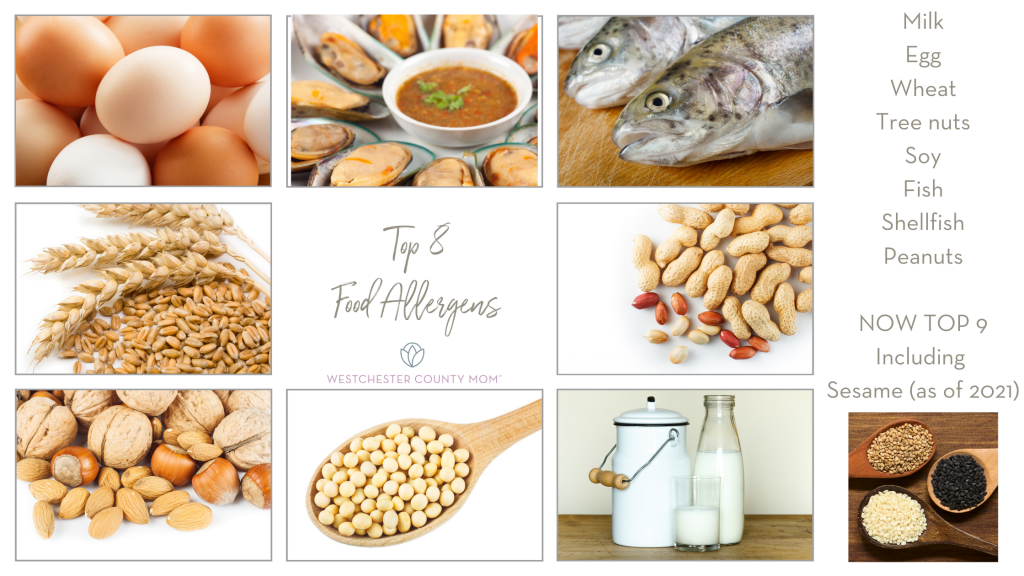 That headline grabbed you, didn’t it? Sorry, not sorry! Allergy awareness should make you stop and think.
That headline grabbed you, didn’t it? Sorry, not sorry! Allergy awareness should make you stop and think.
May 9th-15th marked Food Allergy Awareness Week in the United States. Even though 1 in 13 children manages a food allergy, some parents still complain that their child can’t eat a peanut butter sandwich at school. This is one reason why awareness is so important to families like mine.
(Disclaimer: if your child has unique sensory needs or a disability, this does not apply to you; your child’s individual needs are valid and should absolutely be accommodated, just never at risk to the life of a classmate. There is room for everyone on the accommodation train!).


I’ve been writing about the struggles of managing food allergies as a family and our journey through treatment for over a year now. A peck on the cheek could have cost my child his life on Christmas Eve a year and a half ago.
During the pandemic, finding safe foods was nearly impossible. We’ve been turned away from a misinformed restaurant that believed cross-contact isn’t a problem if you don’t have a severe allergy (hint: cross-contact should be avoided no matter your reaction history, and mild food allergies do not exist, only mild reactions). By the way, that experience highlights, in and of itself, the necessity for more awareness. My anxiety with keeping my child safe in public was so significant that social distancing has felt like a reprieve.
Awareness matters because children continue to lose their lives to food allergies while in school and other public areas (see here (a local tragedy), here, and here for a few examples). Awareness matters because bullying of kids with food allergies continues to be a problem (learn more about how to make a difference on this matter here, and a review of the issue here).
Awareness matters because food allergies are a major source of anxiety for children managing the conditions (here, here, here, and here). Awareness matters because children continue to feel excluded during social events because food is a huge part of our celebratory culture.
But awareness only goes so far. So, what can you do as a concerned parent to help support those 1 in 13 children feel safe and included? Here are a few tips to get you started:
1. ASK!
Ask if any of your children’s classmates or friends have food allergies and what they are. Ask about preferred products. Ask what you can do to help them feel included. Ask about their allergy action plan if you are watching them for a play date or other occasion. Food allergy parents (and patients who are old enough to self-advocate) love being asked because we spend so much time being ignored, forgotten, and excluded.
We are happy to help educate you, and even if we wind up bringing our own products to an event, it makes us feel safe and included when someone thinks of us. Looking for occasion-specific tips? I will be sharing more for Westchester County Mom in the coming months, but until then, you can find resources listed at the bottom of the page. You’ll see several common themes because the general advice is standard. Read labels, don’t hesitate to epi if you are a caregiver, always carry 2 epi-pens. Understand the allergy action plans for the kids in your care. Ask questions. Offer to provide safe treats.
2. Offer non-food treats for celebrations.
Kids love trinkets! Instead of bringing cupcakes to school for your child’s birthday, consider non-food goodie bags or bringing a favorite book in to share with the class. Or, ask about what allergies there are in the class and what alternative treats you can bring in. Even better than going the multiple treat option if you are insistent on food? Give food allergy-friendly goodies to everyone, so no one feels left out. Also, see #4 because buying something labeled “school safe” or “allergy-friendly” doesn’t actually make food safe.
3. Don’t complain about food restrictions in the class or school.
Those of us with food allergies and with children managing food allergies hear you. It breaks our hearts how cruel people can be. If you don’t understand the seriousness, the appropriate response isn’t to complain. It is to ask and learn why those policies are in place and educate yourself on why they are so necessary. You wouldn’t complain about a wheelchair ramp, would you? What about being asked to wash your hands to keep an immunocompromised child healthy?
Remember, food allergies are a disability, and they are life-threatening. Don’t be the person who minimizes something that literally kills kids or the person who complains about taking steps to keep kids safe. It isn’t a good look. Concerned about what to feed your kid? There are tons of blogs and websites out there that literally focus just on this. The internet is a great thing if you use it!
4. Remember, nut-free doesn’t mean allergen-free.
It means there are no nuts in the recipe. There could be cross-contact. There could be other allergens. In fact, unless an allergen is in the Top 8 (until the FASTER Act goes into effect on 1/1/23, at which time companies will have to disclose the Top 9), there is no obligation for companies to include all the ingredients on the label. That means allergens such as sesame can be in a product, and you can have no idea.
Allergens like sesame can be hidden in natural flavors, spices, confectioner’s glaze, or other components. And it is 100% legal right now. Even after the FASTER Act goes into effect, allergens beyond the Top 9 will not have to be labeled. I won’t even discuss all the loopholes there are for labeling allergens, even the Top 8. It is a major problem.
Fun fact; I had an allergic reaction to tree nuts. I’m not allergic to tree nuts! I’m allergic to peanuts. The label clearly said, “peanut-free,” so I was shocked. It turns out peanut oil was used. That part was in the fine print on the back label and not disclosed in the allergen statement. Completely legal, thanks to a loophole. So, read labels, but don’t assume a product is safe because an allergen isn’t listed.

5. Learn about food allergies from leading evidence-based advocacy groups.
Food Allergy Research and Education is a great resource. I have been so proud to partner with them recently on several campaigns as a #TealChampion. You can even check out a Thanksgiving episode I filmed with them here.
6. Be kind.
Growing up is hard. Growing up with the condition that means you are excluded and sometimes even ridiculed for something that could cost you your life is even harder. Food allergies aren’t a joke. Food allergies aren’t parents being overdramatic. Food allergies aren’t intolerances. Food allergies are a serious, life-threatening, and life-altering condition.
It isn’t that complicated. You can make a kid’s day or even save a life by doing a few simple things. It costs absolutely nothing. And really, how cool is that?
You can learn more about food allergies on Food Allergy Research and Education website or by visiting the Mindfully Scientific Mama food allergy resource page for a list of resources, support groups, and other advocacy organizations.




















